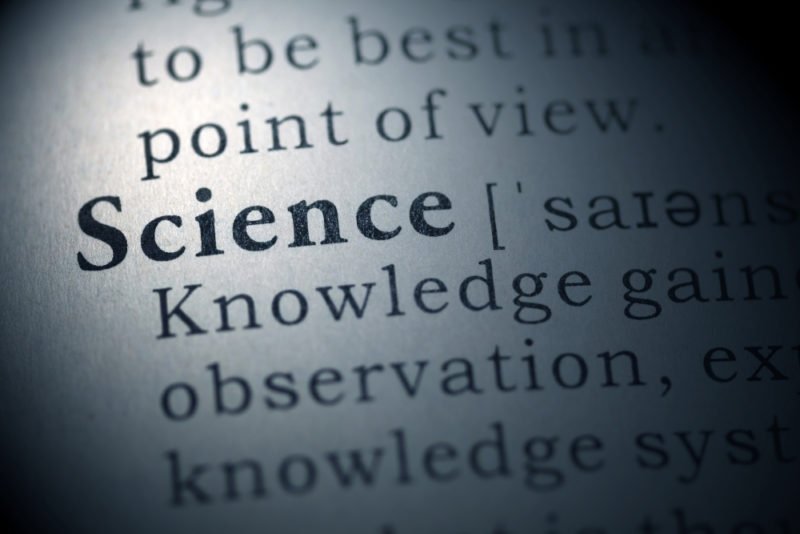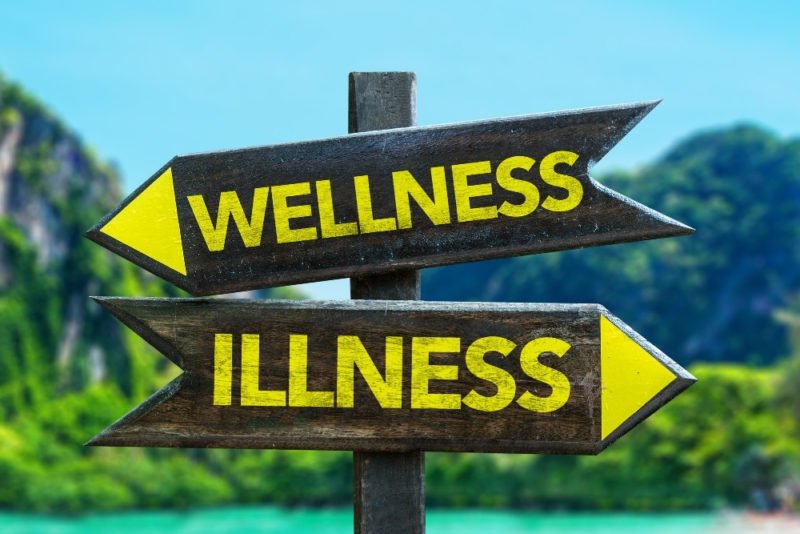
Elimination diets have been super trendy for a while now, and that’s a problem. There’s seemingly no end to books promoting elimination diets for digestive health, immune health, or whatnot, but even when these books are written by licensed health professionals (I’m thinking of a few written by doctors, specifically), I would never recommend them to someone I liked. (Or even on someone I didn’t like.)
These diets are essentially a prime example of magical thinking. They are not uniquely positioned to help you improve your health (i.e., they aren’t the “secret sauce”), and there’s a chance they could actually harm your physical or mental health. Yet they remain popular. And I fully admit that, once upon a time, I would have fallen for their promises. But I know better, now, so I want to share my top five concerns about these diets.
1. The diet may be a dangerous distraction from finding out what’s really wrong
Many people are attracted to elimination diets because they are experiencing somewhat nebulous symptoms like brain fog, fatigue, digestive distress or sore joints. Here’s the problem: in some cases, those symptoms are simply part of normal human experience. Brain fog can be caused by the hormonal changes of pregnancy or menopause, or simply by stress, lack of quality sleep or dehydration. An elimination diet won’t help any of those things. As for fatigue? I could really repeat the same list as for brain fog (plus, and who doesn’t feel less-than-energetic some of the time?).
What about when these symptoms aren’t “normal”? If they are related to an actual medical problem, that’s also something that a random elimination diet form a book or blog isn’t going to “fix.”
- Brain fog could be related to a dementia, depression, anemia, diabetes, migraines, hypothyroidism, multiple sclerosis or lupus.
- Fatigue could be related to countless conditions, including anemia, chronic fatigue syndrome, fibromyalgia, thyroid issues, diabetes, kidney or liver disease, eating disorders and cancer.
- Digestive distress could be related to any number of conditions, including inflammatory bowel disease (which can’t be fully addressed with diet), irritable bowel syndrome (put a pin in this one), celiac disease (ditto), or an eating disorder.
- Sore joints could be related to one of the myriad forms of arthritis, as well as osteoporosis, hepatitis, tendinitis, bursitis, breakdown of cartilage, a bone infection, or cancer.
I’m all for eating nutritious food to improve health and well-being, but as a registered dietitian with a master’s degree in public health, I know that there are times when nutrition is not enough—specifically, it’s not a substitute for appropriate diagnostic testing and medical care. What if you did an elimination diet and, say, found that you feel better when you don’t eat gluten. Are you going to resume eating gluten so you can get accurate testing for celiac disease?

2. You could trigger an eating disorder
I mentioned that eating disorders can cause some of the symptoms that many people seek to relieve through an elimination diet. Well, elimination diets can also trigger an eating disorder in susceptible people. Why? Because they’re restrictive.
- Some people double down on the restrictive nature of an elimination diet, removing more and more foods from their diet and becoming orthorexic (developing an unhealthy obsession with eating healthy) or anorexic (developing a life-threatening eating disorder characterized by dramatic weight loss, intense fear of gaining weight, and severe disturbance in how body weight or shape is experienced).
- Other people break under the pressure of the diet’s restrictions, and end up binging (eating very large amounts of food in a short period of time), often on “forbidden” foods.
- Still others binge in response to the food restrictions, but then practice compensatory behaviors to “get rid of” the food they just ate, via vomiting, compulsive exercise or other means.
The co-author of one very popular elimination diet (which I won’t name) claims that her plan will help readers improve their relationship with food. I can’t state this strongly enough: restrictive diets don’t improve food relationships, they harm them.
For personal stories about how elimination diets can lead to orthorexia—or worse—check out my 2018 article on orthorexia for Today’s Dietitian magazine. I interviewed two dietitians who themselves struggled with severe orthorexia that was triggered by elimination diets.
The bottom line is that if you have a history of an eating disorder—or even deeply disordered eating characterized by restriction and food obsession—or have close family members who have experienced eating disorders (which may mean you have a genetic predisposition), you should not start an elimination diet unless it’s medically necessary (which is, honestly, rare). Even a medically necessary elimination diet should be guided by a dietitian or other healthcare provider who has training in eating disorders, and that diet will likely be modified to be less restrictive.

3. Most elimination diets aren’t backed by science
I’ve reviewed countless elimination diets, including those presented in books, blogs and through 1-on-1 consultations. While the backbones of these programs are almost universally built from nutritious foods, they also “ban” many foods, including many nutritious foods. For example, many elimination diets restrict dairy, grains and pulses (beans and lentils). Some restrict certain fruits and vegetables, notably nightshade vegetables (tomatoes, peppers, eggplants, tomatillos and potatoes).
While it’s true that SOME people can’t tolerate dairy or gluten or beans or nightshades or any number of other foods. But many elimination diets are predicated on the idea that because certain foods are problematic for some people, we should all avoid them, whether temporarily or permanently. This notion is not backed by science!
The “avoid this food” claims often center on one specific component of the food. For example:
- Lectins in beans, soybeans, peanuts, whole grains and nightshade vegetables
- Phytates (phytic acid) in whole grains, beans, nuts and seeds
- Solanine in nightshade vegetables
But here’s the thing: there is no evidence that lectins are harmful when eaten in amounts that would be realistic for a human to eat. The few studies that show harm revolve around badly undercooked kidney beans (so don’t do that). Lectin-containing foods are high in vitamins, minerals, antioxidants and beneficial phytochemicals. Phytates actually have antioxidant benefits and may help protect against cardiovascular disease, cancer and diabetes.
The nightshade family (botanical name Solanaceae) is made of 2,000 varieties of plants. Some (notably belladonna) are quite poisonous. However, the nightshade vegetables you see in your grocery store or farmers market, or even grow in your vegetable garden, have been staple foods for centuries in traditional diets, including the Mediterranean diet. And blueberries, often considered the healthiest fruit you can eat, contains some solanine, even though it’s not part of the nightshade family. Just some food for thought.
When these diets make people feel better, it’s likely because they’re eating more fruits and vegetables and fewer highly processed foods…something that doesn’t require a restrictive diet!
Note: I’ve seen these bogus claims in books written by medical and naturopathic doctors, so know that MD or ND after the author’s name doesn’t mean the diet is legit. I interviewed some Seattle nutrition science researchers about the problems with many popular “nutrition” books last year, and it’s well worth a read.

4. You can’t disease-proof yourself
Related to that, a common thread among elimination diets is that if you follow their rules, you’ll enjoy perfect health. Again, there are some significant problems with this, namely that we cannot disease-proof ourselves. You could eat the healthiest diet in the world (and I would argue that these elimination diets are NOT contenders for that title) and still develop a health condition.
It’s perfectly natural to want to be as healthy as possible, but that’s going to look different from person to person, based on many factors that have NOTHING to do with nutrition. Some, such as genetics, epigenetics and social determinants of health (which includes early childhood experiences, trauma, and discrimination), are not within our control. Others, including physical activity, tobacco and drug use, alcohol intake, sleep, stress management and, yes, nutrition, are at least partly within our control.
But more than this, what does health really mean? Often, we think about physical health and prevention of chronic physical diseases. But what about our mental/emotional/psychological health? The World Health Organization defines wellness as “a state of complete physical, mental, and social well-being, and not merely the absence of disease or infirmity.” The National Wellness Institute says that:
- Wellness is a conscious, self-directed and evolving process of achieving full potential
- Wellness is multidimensional and holistic, encompassing lifestyle, mental and spiritual well-being, and the environment
- Wellness is positive and affirming
How positive and life-affirming is a restrictive diet that is unnecessary and not even grounded in sound nutritional science? How well does an elimination diet support social well-being if you can’t share a meal with others because half the food is on your “avoid” list?

5. You’re a unique individual
What if you would truly benefit from an elimination diet? For example, let’s say you were diagnosed with irritable bowel syndrome (a diagnosis that generally is arrived upon based on a combination of symptom history and ruling out more serious digestive disorders).
In that case, an elimination diet is totally warranted. Specifically, the FODMAP elimination diet, followed by a structured “challenge” so each person can determine which foods, in which amounts, are problematic for THEM. The ultimate goal is to have as varied a diet as possible while still managing symptoms.
However, I’ve had clients who tried to do a FODMAP elimination diet on their own. Often, this is because their doctor handed them a printout of “foods to avoid” from some website and sent them on their way, rather than referring them to a dietitian. I have one such client right now. She figured out a few foods she needs to avoid, but has continued to experience horrible symptoms (she basically can’t leave the house in the morning, and even after that has to be mindful of where the nearest toilet is). I’m helping her “redo” the elimination diet, and other than twice when she let a high-FODMAP food slip in, she’s been symptom free. That is a HUGE quality of life improvement.
I’ve had other clients with histories of eating disorders or severely disordered eating who were put on a FODMAP elimination diet by doctors or dietitians who didn’t have experience in eating disorders and so didn’t ask the right questions. Fortunately, one of these clients had the self-awareness to realize that she liked the restrictiveness of the diet a little too much, and she stopped following it. As it turned out, she didn’t have IBS. Once she loosened the rigid food rules she already had, her IBS-like symptoms started to resolve.
Disclaimer: All information provided here is of a general nature and is furnished only for educational purposes. This information is not to be taken as medical or other health advice pertaining to an individual’s specific health or medical condition. You agree that the use of this information is at your own risk.
Hi, I’m Carrie Dennett, MPH, RDN, a weight-inclusive registered dietitian, nutrition therapist and body image counselor. I offer compassionate, individualized care for adults of all ages, shapes, sizes and genders who want to break free from eating disorders, disordered eating or chronic dieting. If you need to learn how to manage IBS symptoms with food, or improve your nutrition and lifestyle habits to help manage a current health concern or simply support your overall health and well-being, I help people with that, too.
Need 1-on-1 help for your nutrition, eating, or body image concerns? Schedule a free 20-minute Discovery Call to talk about how I can help you and explore if we’re a good fit! I’m in-network with Regence BCBS, FirstChoice Health and Providence Health Plan, and can bill Blue Cross and/or Blue Shield insurances in many states. If I don’t take your insurance, I can help you seek reimbursement on your own. To learn more, explore my insurance and services areas page.






